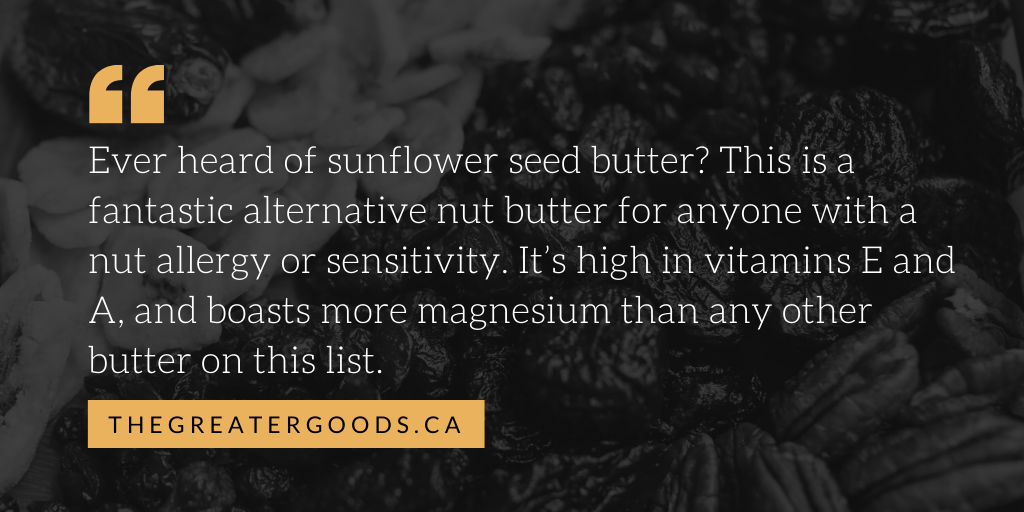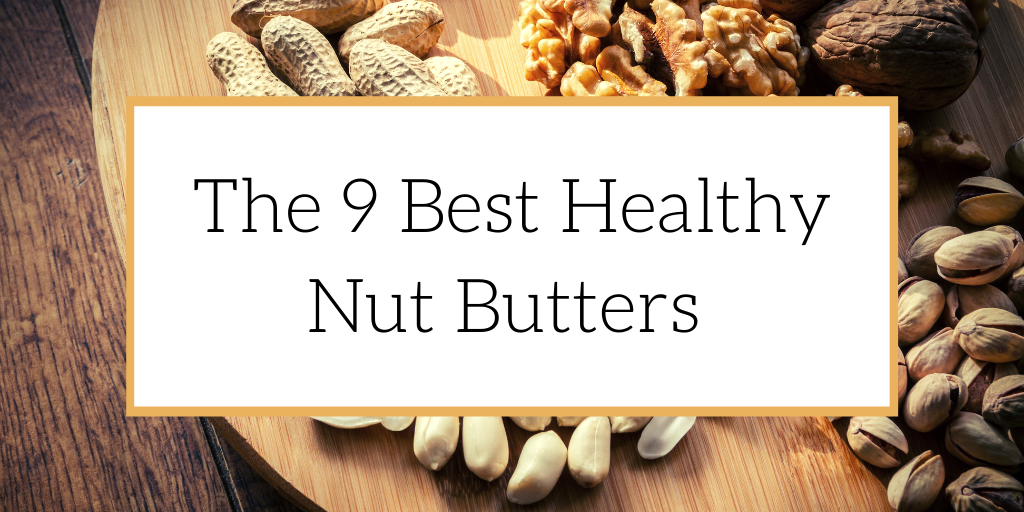Not many years ago, peanut butter was seemingly the only option in the grocery store when it came to nut butters. Now, we’re able to walk down our local health food aisles (or order online of course) and find nearly a dozen different types of nut butters, by different brands. But in this new world of nut butters, which do you choose if you’re trying to find the healthiest option? We’re going to take a look at the 9 best healthy nut butters that are readily available, so you can find the one that’s best suited to specific nutritional needs or fitness goals.
Peanut Butter
Peanut butter is, of course, the OG of nut butters. Having said this, the majority of us have opted for the sugary brands since we were children. Not just because they’re cheap to buy, but because they taste great! However, there are much better options for peanut butter out there, that are rich in protein, iron, potassium, magnesium, and vitamin B6 and zinc, without all of the added sugar.
Almond Butter
Almond butter is usually the first nut butter that customers will try after peanut butter, if their goal is to start expanding their horizons in this department.
Cleveland Clinic tells us why almond butter is top of their list if you want to start making a transition from the more traditional peanut butter:
“Almond butter is a great choice if you’re looking to broaden your taste horizons past peanut butter. Almond butter tastes great and is similar in texture and thickness to peanut butter. The good news nutritionally is that almond butter has about 3 grams more of heart-healthy monounsaturated fat per serving than peanut butter. Plus, unlike processed regular peanut butter, almond butter usually is lower in sugar and provides a little extra calcium, about 60 mg per tablespoon. Look for brands with a single ingredient: roasted almonds.”
Pistachio Butter
Pistachio butter is one of the best options out there if you’re looking to up your protein intake – plus, it naturally tastes delicious without any added sugar. This nut butter is also loaded with vitamin B, which can help turn calories into energy.
Walnut Butter
While walnut butter may not be as widely spoken about as peanut or almond butter, it’s incredibly good for you and offers a wide variety of important health benefits.
Dieticians Keri Gans and Scott Keatley weigh in on the many health benefits of walnut butter on Womenshealthmag.com:
“In addition to a solid serving of protein, walnut butter also offers alpha-linolenic acid (ALA), the omega-3 fatty acid found in plants. According to Keatley, ALA can help lower your risk of heart disease, lower your blood pressure and cholesterol, and reverse hardening of your blood vessels, so there’s that. Walnut butter also offers nut butters’ usual heart-boosting properties. “It also provides heart-healthy monounsaturated fats and vitamin E, which both have anti-inflammatory properties,” Gans says.”
Sunflower Seed Butter

Ever heard of sunflower seed butter? This is a fantastic alternative nut butter for anyone with a nut allergy or sensitivity. It’s high in vitamins E and A, and boasts more magnesium than any other butter on this list. It’s important to remember that sunflower seed butter is higher in calories and a little lower in protein than other nut or nut substitute butters, so it should be used somewhat sparingly.
Hazelnut Butter
Hazelnut butter is a fantastic alternative for those who specifically have a peanut allergy – not an overall nut allergy. Hazelnut butter is rich in oleic acid, a monounsaturated fat that can help lower your risk of heart disease and stroke. It’s also completely free of natural sugars, and is a great source of vitamin E. And no, hazelnut butter does not include hazelnut spreads like Nutella!
Tahini
Tahini is technically a seed butter as it is made from sesame seeds, but has become more popular in recent years as a nut butter alternative. Tahini is a great source of vitamin E and also contains a large amount of copper, which aids in the creation of red blood cells.
Cashew Butter
Cashew butter is a popular pick amongst nut butters (if not one of the more expensive), and naturally has a great taste. It’s also rich in the good monounsaturated fatty acids, while keeping the less beneficial fats at bay.
Kristen Mancinelli MS, RD of Livestrong.com tells us why cashew butter is a great lower fat option amongst the nut butters:
“Cashew butter has a relatively sweet taste and a smooth, creamy texture. Although cashew butter is somewhat lower in fat than other nut butters (two tablespoons contain 16 grams of fat, compared with 18 grams for almond butter and 19 grams for walnut butter), its fat profile is a winning one. Sixty-two percent of the fat in cashew butter is of the monounsaturated kind, making it one of the top sources of monounsaturated fatty acids (MUFAs) in the nut category. MUFAs, also found in high proportions in olive oil and avocados, have beneficial effects on blood pressure and cholesterol levels.”
Coconut Butter
Coconut butter is technically another nut butter alternative, with coconuts being classified as a fruit. However, it’s great for you in small doses, providing a source of protein, potassium, magnesium and iron. The reason why it’s only good for you in small doses, is because coconut contains a high amount of saturated fats, so it’s best not to go overboard on this nut butter alternative.
Here at The Greater Goods, we offer consultation services for your business, from food production to distribution. If you’re looking for advice on how to get up and running, we offer a free consultation with our expert food industry consultants and food brokers.
